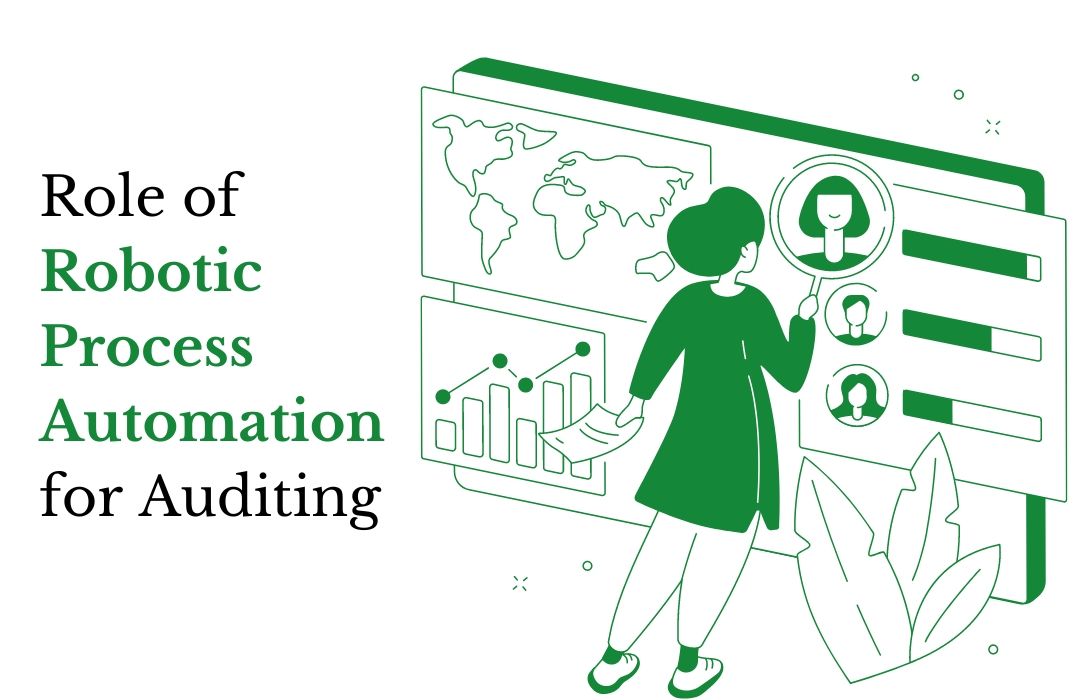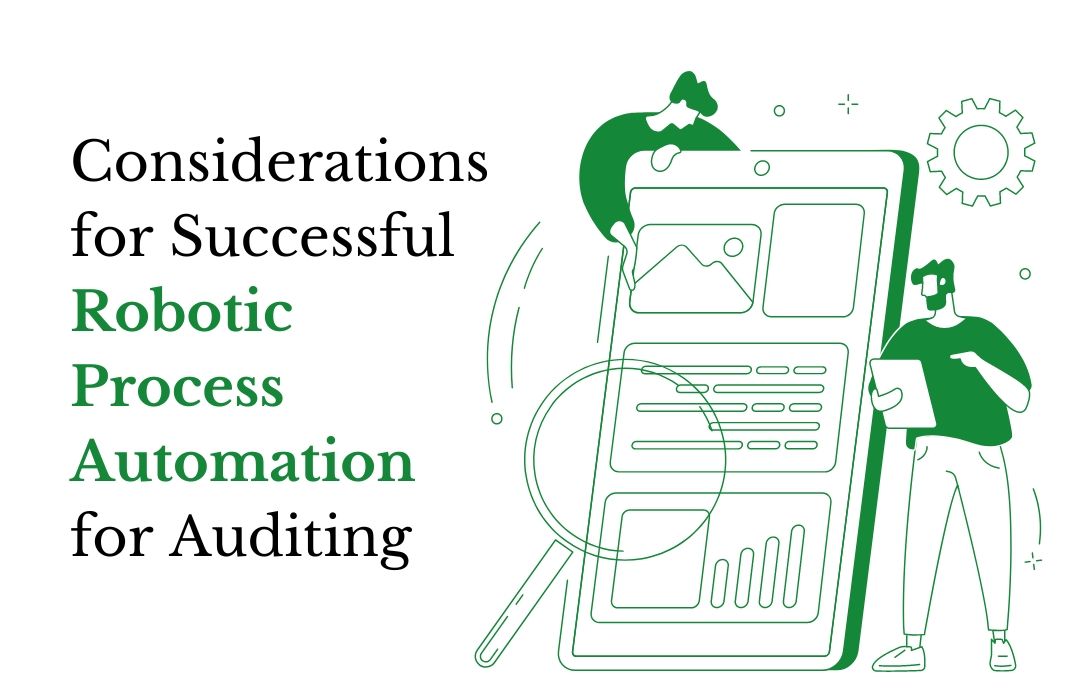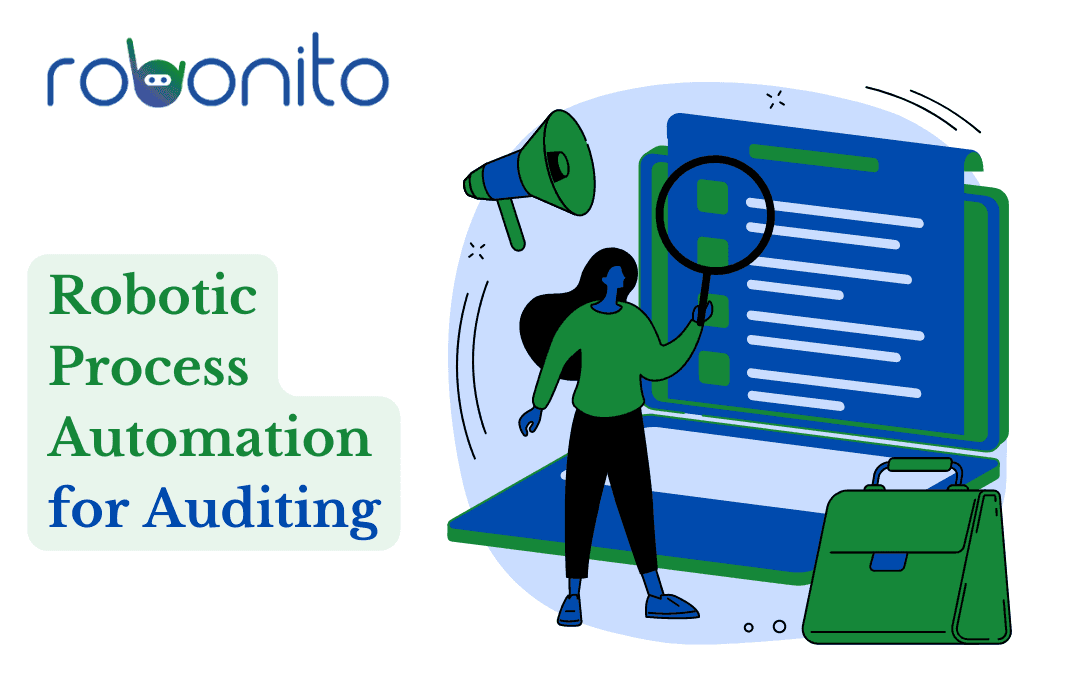In today's digital age, businesses are constantly seeking innovative ways to streamline their operations and increase efficiency. One such technology that has gained significant traction is Robotic Process Automation (RPA). With its ability to automate repetitive tasks and improve accuracy, RPA has found a valuable application in the field of auditing. This article explores the benefits and implications of using robotic process automation for auditing processes.
In the realm of auditing, accuracy, speed, and reliability are paramount. Auditors are responsible for ensuring compliance, detecting fraud, and assessing financial risks. However, the traditional manual auditing process is often time-consuming, prone to errors, and lacks scalability. This is where Robotic Process Automation comes into play.
Benefits Of RPA Auditing
Increased Efficiency: RPA automates repetitive tasks, reducing the need for manual intervention and increasing process efficiency.
Cost Savings: RPA eliminates the need for human involvement in mundane tasks, leading to significant cost savings for businesses.
Accuracy and Error Reduction: RPA bots perform tasks with high accuracy, reducing the chances of human errors in data entry and processing.
Improved Productivity: By handling routine tasks, RPA allows employees to focus on more strategic and value-added activities, boosting overall productivity.
Faster Process Execution: RPA bots work 24/7 without breaks, leading to faster process execution and improved turnaround times.
Scalability: RPA can be easily scaled up or down to accommodate changing business needs and workloads.
Enhanced Customer Experience: RPA streamlines processes, leading to quicker response times and improved customer service experiences.
Non-Intrusive Integration: RPA can be integrated with existing systems without the need for significant changes to the underlying infrastructure.
Compliance and Auditability: RPA ensures consistent adherence to predefined rules and processes, enhancing compliance and auditability.
Improved Data Management: RPA bots can gather, process, and analyze data from multiple sources, enabling better data management and decision-making.
No Coding Knowledge Required: RPA platforms often have user-friendly interfaces that allow business users to create automation workflows without extensive coding knowledge.
Rapid Implementation: RPA implementations are generally faster compared to traditional IT projects, providing quick returns on investment.
Flexibility and Adaptability: RPA bots can easily adapt to changes in processes, making them suitable for dynamic business environments.
Non-Disruptive Implementation: RPA can be deployed without disrupting existing systems, minimizing business interruptions during implementation.
Improved Compliance: RPA ensures that processes are executed as per defined rules and regulations, reducing the risk of non-compliance.
Better Employee Satisfaction: RPA relieves employees from mundane tasks, leading to higher job satisfaction and engagement.
Competitive Advantage: Businesses leveraging RPA gain a competitive edge by being able to deliver services faster and more accurately.
Increased Data Security: RPA ensures secure data handling and minimizes the risk of unauthorized access or data breaches.
Interoperability: RPA can work with a wide range of applications and systems, making it highly interoperable.
Process Insights and Analytics: RPA provides valuable process insights and analytics, allowing businesses to identify bottlenecks and areas for improvement.
Overall, RPA offers numerous benefits that enable organizations to optimize their operations, reduce costs, and improve customer experiences, leading to increased competitiveness and growth.
What Robotic Process Automation for Auditing:
Robotic Process Automation refers to the use of software robots or "bots" to automate repetitive tasks within a business process. These bots mimic human actions, interacting with various applications and systems to perform tasks such as data entry, report generation, and data analysis. RPA software operates on predefined rules and workflows, executing tasks accurately and efficiently.
Role of Robotic Process Automation for Auditing

RPA offers significant advantages to auditors by automating routine and rule-based tasks involved in the auditing process. It can extract data from multiple sources, perform data validation, conduct risk assessments, and generate audit reports. By handling these repetitive tasks, RPA enables auditors to focus on higher-value activities, such as data analysis, anomaly detection, and strategic decision-making.
Benefits of RPA in Auditing
Increased Efficiency: RPA can execute tasks at a much faster rate than humans, reducing the time required for audit procedures. This efficiency boost enables auditors to complete audits within shorter timelines, thereby improving productivity.
Enhanced Accuracy: Human errors can be costly in auditing. RPA ensures accuracy and consistency in executing tasks, minimizing the chances of errors and ensuring compliance with audit standards.
Scalability and Flexibility: RPA can handle a large volume of data and repetitive tasks without fatigue or errors. It can adapt to changing audit requirements and can be easily scaled up or down as per the organization's needs.
Improved Risk Management: RPA can conduct risk assessments and identify potential anomalies in large datasets, enabling auditors to focus on high-risk areas and detect fraudulent activities more effectively.
Implementing Robotic Process Automation for Auditing Processes
Implementing RPA in auditing processes requires careful planning and consideration. Here are some key steps to follow:
Identify Audit Processes: Assess the existing audit processes and identify tasks that are repetitive, rule-based, and time-consuming.
Prioritize Automation Opportunities: Determine the tasks that can be automated using RPA, considering the potential impact on efficiency, accuracy, and risk management.
Design RPA Workflows: Create detailed workflows and rules for the identified processes. Define input sources, data validation rules, and expected output formats.
Select RPA Tools: Choose appropriate RPA software that aligns with the organization's requirements. Evaluate factors such as ease of use, scalability, integration capabilities, and security.
Test and Deploy: Conduct rigorous testing of the designed RPA workflows to ensure their accuracy and effectiveness. Deploy the RPA solution in a controlled environment and monitor its performance.
Considerations for Successful Robotic Process Automation for Auditing

To ensure a successful RPA implementation in auditing, consider the following:
Stakeholder Buy-In: Obtain support and involvement from key stakeholders, including auditors, IT departments, and management, to foster a collaborative approach.
Data Security: Implement robust data security measures to protect sensitive information and ensure compliance with data privacy regulations.
Continuous Monitoring: Regularly monitor and evaluate the RPA solution's performance to identify and address any issues or anomalies promptly.
Employee Training and Change Management: Provide comprehensive training to auditors and other employees to familiarize them with the RPA technology and its impact on their roles.
Challenges and Limitations of Robotic Process Automation for Auditing
Despite its numerous benefits, implementation in Robotic Process Automation for Auditing also comes with challenges and limitations. Some common ones include:
Complex Data Extraction: RPA may face difficulties in extracting data from complex systems or unstructured formats, requiring additional manual intervention.
Lack of Cognitive Abilities: RPA bots are rule-based and lack cognitive abilities. They may struggle with tasks that involve judgment, reasoning, or complex decision-making.
Maintenance and Monitoring: RPA systems require regular maintenance, updates, and monitoring to ensure their optimal performance. Failure to do so can lead to disruptions in audit processes.
The Robotic Process Automation for Auditing
The future of RPA in auditing looks promising. As technology advances, RPA solutions are expected to incorporate more cognitive capabilities, such as natural language processing and machine learning algorithms. These advancements will further enhance the efficiency, accuracy, and effectiveness of auditing processes.
Conclusion To Robotic Process Automation for Auditing
Robotic Process Automation has emerged as a powerful tool for auditors, revolutionizing the auditing landscape. By automating repetitive tasks, RPA enables auditors to focus on higher-value activities, enhances efficiency, and improves risk management. However, successful RPA implementation requires careful planning, stakeholder involvement, and consideration of potential challenges. As RPA technology continues to evolve, auditors can leverage its capabilities to drive greater effectiveness and productivity in the field of auditing.
Revolutionize your software testing with Robonito, the ultimate no-code RPA automation testing tool. Say goodbye to endless testing hours – Robonito slashes testing time by a staggering 98%! Ready to experience the future of software testing? BOOK A FREE DEMO NOW and transform your testing process today!
Q1. Does RPA completely replace auditors in the auditing process?
No, RPA does not replace auditors. Instead, it automates repetitive tasks, allowing auditors to focus on critical analysis, risk assessment, and decision-making.
Q2. Can RPA be integrated with existing auditing software?
Yes, RPA can be integrated with existing auditing software, enhancing its capabilities and automating manual tasks within the software.
Q3. What are some common applications of RPA in auditing?
Common applications of RPA in auditing include data extraction and validation, report generation, risk assessment, anomaly detection, and compliance testing.
Q4. Is RPA suitable for small-scale auditing firms?
Yes, RPA can benefit small-scale auditing firms by improving efficiency, reducing errors, and enabling auditors to handle a higher volume of audits.
Q5. How can auditors ensure data security when implementing RPA?
Auditors should implement robust data security measures, including access controls, encryption, and regular security audits, to protect sensitive information when implementing RPA.
